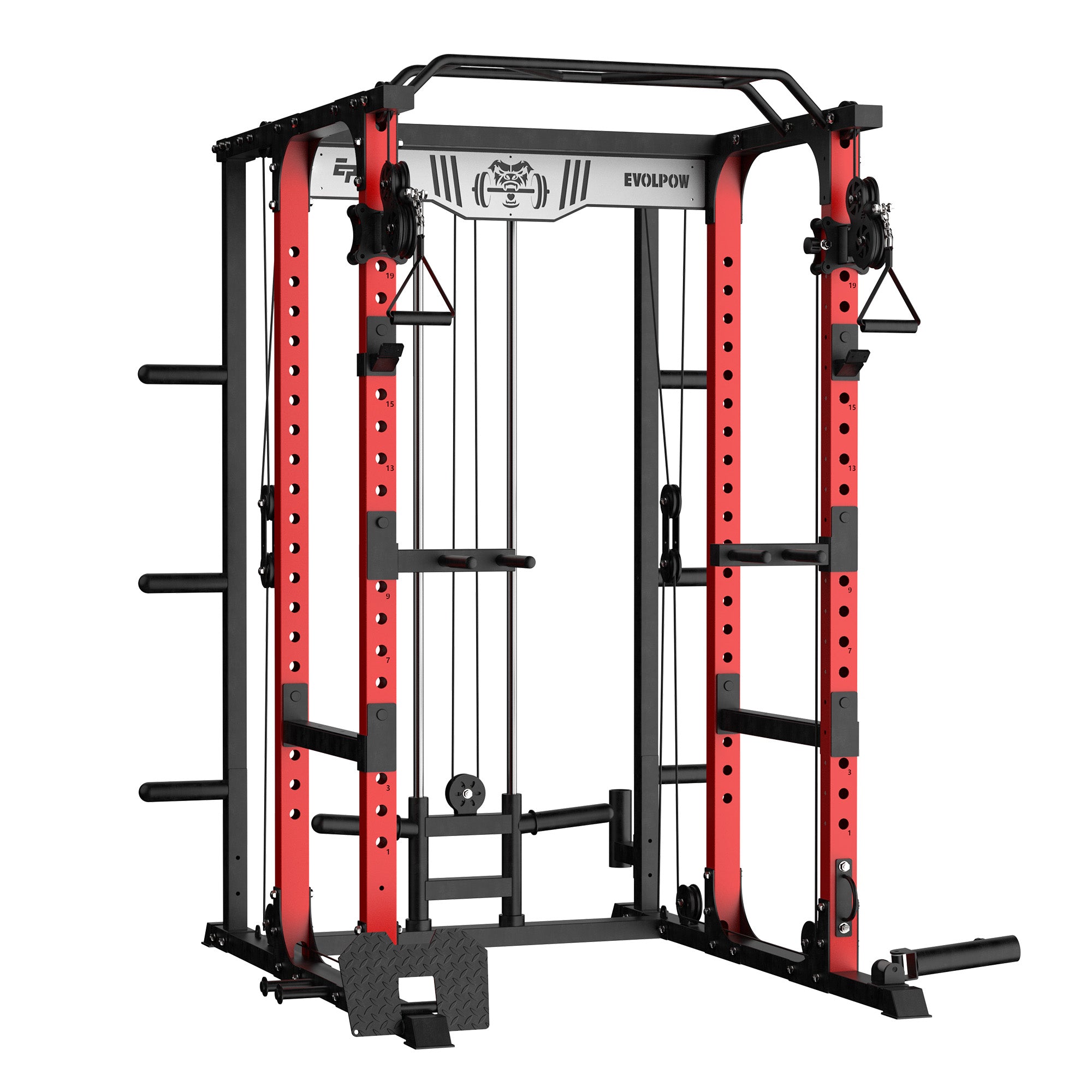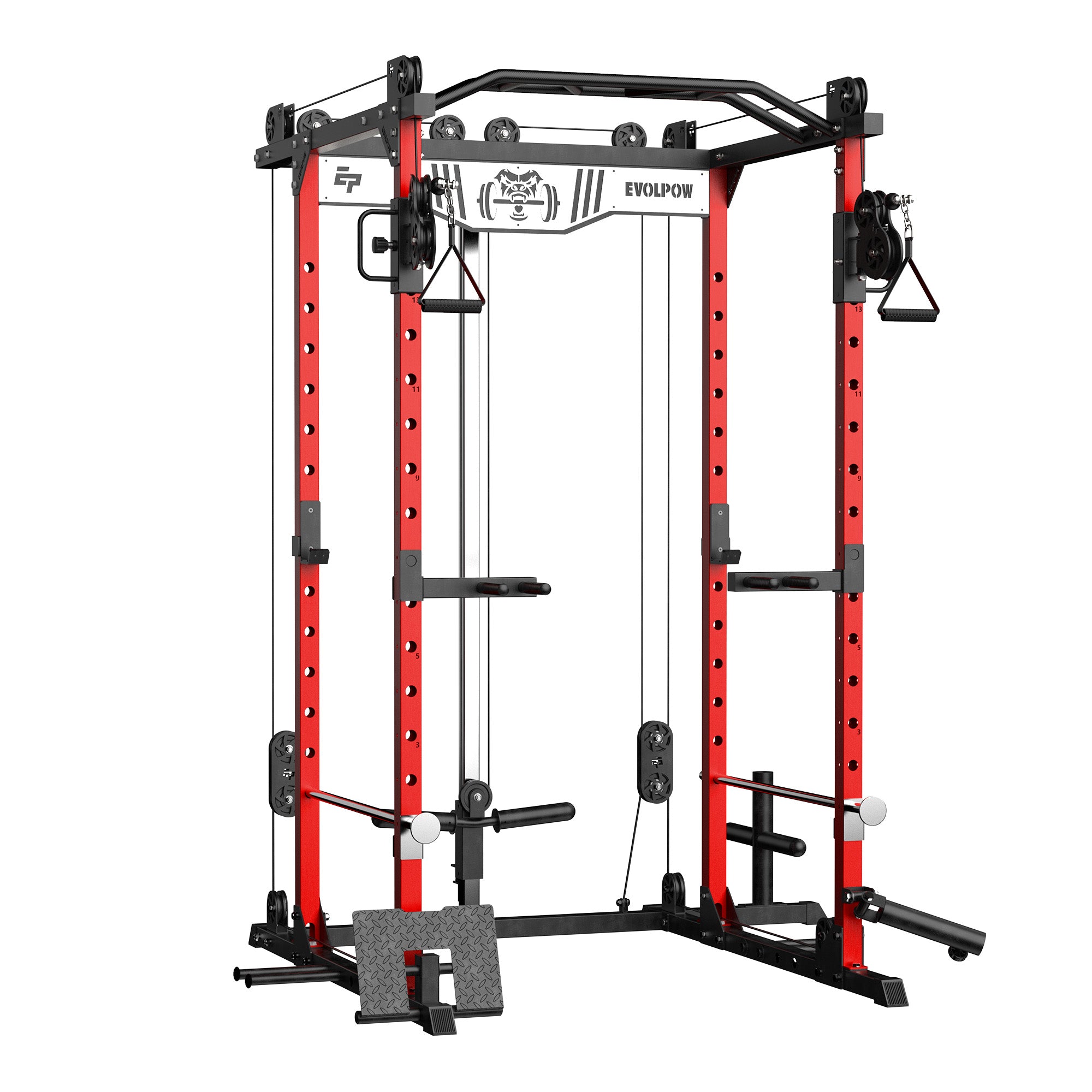In the pursuit of health and fitness goals, everyone wants to achieve ideal posture and health through effective exercise and strength training. Strength training can help in many ways, including improving blood circulation, strengthening your heart, lungs, muscles, and bones, and enhancing your emotional well-being. However, there are common mistakes you can easily fall into that will greatly diminish the value of your exercise. As a beginner, it's important to avoid these pitfalls to prevent hindering your progress. Using the proper exercise supplies and ensuring the right barbell weights are crucial for safer and more effective workouts.
In this article, we'll share 8 basic exercise mistakes that can ruin your workout, helping you avoid these pitfalls and make your workout more effective and safer.
l 8 Basic Exercise Mistakes
Neglecting Your Warm-up
Warming up is a necessary step to prepare your body for intense exercise. Skipping the warm-up increases the risk of injury, as cold muscles and joints are more likely to get hurt, performing a simple but effective warm-up exercise will increase body temperature, blood circulation, and muscle elasticity in preparation for the rest of the workout.
But that doesn't mean any exercise is okay. "Warming up and relaxing work best when specific to your workout," adds Josh Honore, a certified personal trainer and trainer at Row House in San Diego, California. For example, if your workout focuses on squats, try open hip dynamic stretches, such as forward bends and jumping jacks, during your warm up. These movements increase blood flow to the lower extremities and prepare your body for the movement pattern during exercise. Meanwhile, a great way to warm-up is foam rolling. If you’re a beginner, start by utilizing these foam rolling exercises before your next workout.
Not Setting Goals
Having a plan is essential to your success in the gym. "A specific plan ensures that you're actively working towards your fitness goals," Martinez said. For example, If you want to develop a muscle-building program, focus on weight training three to five times a week, with sets of eight to 12 reps, the diet should include high-protein foods and moderate carbohydrates, while tracking progress and sticking to it. It's also important to give your muscles enough time to recover. Only through a proper training and diet plan, and with patience and persistence, can you effectively achieve your muscle building goals.
Accomplishing fitness goals takes time, strategy, and patience. “Try setting one main goal and two to three small goals for early wins,” Nitschke advises. Starting small may help you achieve larger goals, especially at the beginning of your fitness journey.

Incorrect posture
When performing any form of sport and exercise, proper posture is one of the key factors in ensuring the best results and avoiding injury. Proper posture can help you better activate your target muscle groups, improve training results, and minimize unnecessary stress and burden. In addition, proper posture also helps to maintain stability and balance of the body, which is especially important when performing complex movements.
With attention to detail and regular feedback, you can gradually improve your posture and establish the right exercise habits. At the same time, it is also very important to correct the wrong posture in time and seek professional guidance. Good posture not only improves your athletic performance, it also reduces the risk of sports injuries and allows you to enjoy the benefits of healthy exercise. Therefore, whether it is a fitness novice or experienced athlete, they should pay attention to and constantly improve their posture to achieve a more effective and safe exercise effect.
Stick to one exercise and change your routine frequently
Once you find a workout you like, it's tempting to stick with it indefinitely. But that might lead to another exercise mistake: hanging out at a plateau. Doing the same exercise over and over allows you to improve your performance. Your muscles adapt to the movement, and you get better at it. Changing your routine can help you avoid boredom and progress toward your fitness goals.
Doing only one particular type of exercise can lead to over development of some muscles, while others are less involved in training, resulting in muscle imbalance, and repeating the same exercise can easily cause local muscle fatigue and overuse, increasing the risk of injury. However, frequent movement changes may lead to the inability to focus on mastering the technical details of specific movements, unable to establish a deep technical level, difficult to form a systematic training effect, affecting the overall physical improvement.
It's beneficial to incorporate elements of both strategies into your fitness routine. You can focus on a few key exercises to build strength and skill while periodically changing some aspects of your routine to keep your body challenged and prevent monotony.
Ultimately, the best approach depends on your goals, preferences, and fitness level. Experiment with different methods to find what works best for you and consider seeking guidance from a fitness professional to create a well-rounded and effective workout plan.

Trying to progress too fast leads to over-exercising
Trying to progress too quickly in your workouts can lead to over-exercising, which can have negative effects on your body and overall fitness progress. Here are some reasons why progressing too fast can lead to over-exercising:
- Increased Risk of Injury
- Burnout
- Decreased Performance
- Negative Health Effects
- Low energy or moodiness
- Extreme weight and appetite loss
- Performance declines or plateaus
To avoid over-exercising, it's important to progress gradually, allowing your body time to adapt and recover, by taking a balanced and gradual approach to your workouts, you can minimize the risk of over-exercising and promote long-term, sustainable fitness progress while reducing the likelihood of injury and burnout.
Forgetting about hydration
hydration is a crucial aspect of any fitness routine, and forgetting about it can have serious consequences on your performance and overall well-being. Studies have shown that losing more than 2% of your water can lead to dehydration, which can affect your athletic performance in some cases. Adequate hydration helps regulate your body temperature, preventing overheating during intense workouts. Drink small amounts of water at regular intervals during your workout, especially during longer or more intense sessions.
If you're still not sure how much water is enough, the American Council on Exercise suggests that you:
- Drink 17 to 20 oz of water 2 to 3 hours before exercise.
- Drink 8 oz 20 to 30 minutes before exercise.
- Drink 7 to 10 oz every 10 to 20 minutes during exercise.
- Drink 8 oz 30 minutes after exercise.

Ignoring the importance of rest
"Rest is a right, not a reward," Nitschke said. During the break, your body will recover from the exercise. Or, as Honore explains, "Rest is a time when your body is profiting from all the hard work you've done in training."
The number of rest and recovery days you need varies depending on the intensity of your exercise. But studies have shown that about 48 to 72 hours of rest may be optimal for muscle repair. This means that you should set aside at least 2 days per week for recovery before working the same set of muscles.
To get adequate rest, you can do it in the following ways:
Sleep: Make sure to get enough sleep each night to promote your body's recovery and repair.
Intermittent rest: Implement proper interval rest during training to give the body time to recover from breathing and muscle fatigue.
Activity changes: Change your training schedule regularly to include different types of exercise and intensity to avoid monotony and overuse of the same muscle groups. By balancing exercise and rest, you can maximize athletic performance, reduce the risk of injury, and promote your body's overall health.
Unreasonable dietary patterns
A poor diet can be harmful to exercise in a variety of ways, such as:
Insufficient nutrition: An unreasonable diet may lead to an unbalanced intake of nutrients, which cannot meet the energy and nutrients required by the body for exercise, affecting body function and athletic performance.
Insufficient energy: If the intake of energy is not enough to support the exercise consumption, it will lead to the body can not effectively repair and growth, fatigue, weakness and other conditions, and even affect immunity.

Excessive intake: Excessive intake of high-calorie, high-fat, high-sugar foods will increase weight and affect the body's metabolism and exercise performance, and may also lead to an increased risk of chronic diseases such as cardiovascular disease and diabetes.
Digestive problems: An improper diet can lead to indigestion, gastrointestinal problems, and affect the body's absorption of nutrients and comfort during exercise.
Therefore, a proper diet is very important to support healthy exercise.
You should eat a balance of protein, carbohydrates, fats and vitamins and minerals according to your physical condition and exercise needs, ensure adequate water intake, and avoid excessive intake of junk food and high-calorie foods.
l Conclusion
By avoiding these 8 basic exercise mistakes, you can make your workouts more efficient, safe and productive. Remember, exercise is for health and happiness, don't let these mistakes interfere with your fitness path. We wish everyone can achieve a healthy, strong and happy life through scientific and reasonable exercise!
Q&A
Q: How do I know if I'm over training?
A: If you experience constant fatigue, frequent injuries, decreased sleep quality, or poor athletic performance, it could be a sign of over training. It is recommended to adjust the training schedule and increase the rest time.
Q: Should you drink more water during exercise?
A: Yes, you should drink plenty of water during exercise to keep your body hydrated. Drinking the right amount of water can help maintain body temperature, boost metabolism, and prevent dehydration. Depending on the individual situation and the intensity of exercise, it is generally recommended to drink more water before, during and after exercise. Remember to drink as much water as you need, but not too much.
Q: Can I eat before a workout? Any suggestions?
A: It's okay to eat before a workout, but it's recommended to choose foods that are easy to digest and contain carbohydrates and a small amount of protein. For example, fruit, yogurt, whole wheat bread, or nuts are all good choices. Avoid foods high in fat and fiber, as they may cause indigestion. The most important thing is to adjust your diet according to how you feel and how your body responds, to find the way that works best for you.
Reference:
What Are Some of the Most Common Workout Mistakes to Avoid? - GoodRx
14 Common Workout Mistakes and How to Do Better | ISSA (issaonline.com)
Revealed: 8 Common Issues That Can Ruin Your Fitness Gains - Fitneass
5 Exercise Mistakes That Can Ruin Your Workout | Infolific
12 Common Muscle Building Mistakes and How to Avoid Them - Regymen Fitness






